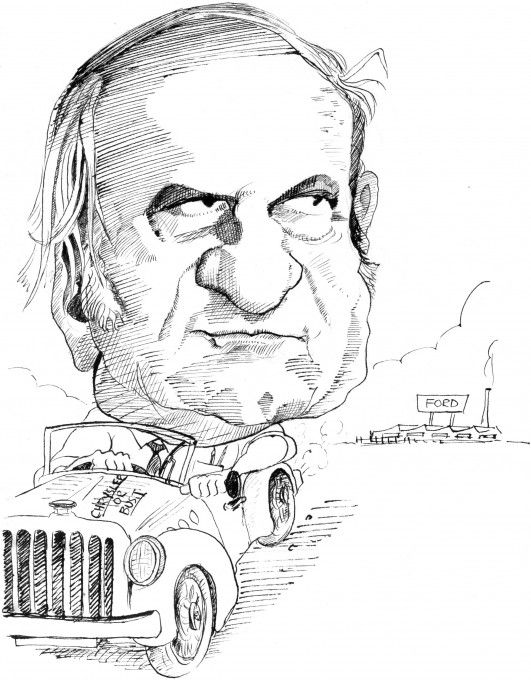
Remember this guy? Lee Iacocca. A really smart guy. He was responsible for the first Ford Mustang and for saving Chrysler (the first time). He’s what some people would call a flamboyant person. His management style at the time was rather unique. He explains it in chapter 5 of his autobiography that was published in 1984 (he’s also dead by now). His style seems to me to be a rather simple, straight forward, common sense approach. Here’s how it worked. He simply asked his top management team (and they asked their key people and so on down the line) a few basic questions. “What are your objectives for the next 90 days? What are you going to get done in the next 90 days? What are your plans, your priorities, your hopes? And how do you intend to go about achieving them?” He explains that the reason this was successful was that not only did it make employees accountable with their supervisors but also accountable to themselves. He required his management team to write their goals out every quarter. Writing it down is very important he says because it’s the first step in making them happen. “In conversation, you can get away with all kinds of vagueness and nonsense, often without even realizing it.” (Amen to that) His technique is a motivator because it “allows a man to be his own boss and set his own goals” and it’s a source of all kinds of new ideas. It let’s the “good guys” shine and makes sure they don’t get passed over but it also identifies the “bad guys” and gives them no place to hide. Maybe best of all it forces dialogue among the members of the team at least once a quarter. What do you do with someone who continually fails to achieve the goals he/she has set for themselves? Iacocca found that he didn’t usually have to fire these people (although some did get fired). They themselves soon recognized that they couldn’t handle their jobs and asked to be moved.
I have adopted Lee Iacocca’s methodology and suggest we use it as the fourth (and last) step in the planning process. I call this last step “monitoring”. The concept is simple enough I think that we can apply it without Lee’s help. What do you think? Do we need to invite Lee to come and consult with us? I doubt we could afford his consulting fee.
We don’t have to worry about the problems Lee faced when we apply his method to our Christian life. We definitely don’t have to worry about whether or not we are in the right job. The Bible clearly explains that we have a fiduciary responsibility for wise use of God’s resources to achieve His objectives. We don’t have to worry about loosing our job or the trauma of changing jobs. And God promises to help us do well with our assigned responsibilities. (Certainly better counsel than Lee could ever provide.) James 1:5 says, But if any of you lacks wisdom, let him ask of God, who gives to all men generously and without reproach, and it will be given to him. And Prov 2:6 reiterates, For the LORD gives wisdom; From His mouth come knowledge and understanding.
So here’s how this last step is going to work. Every time you (and your team) develop a tactical/action plan (step 3 of the planning process) for achieving one of your objectives you will decide how often to review progress. You will have listed all the steps (hoops you have to jump through) to achieve the goal and you will have assigned various members of the team to each step and you will have set deadlines for each step. Then you decide how often to have a team meeting to review progress. Depending on the overall length of the tactical plan and the nature of what has to be accomplished you might want to meet every third Thursday of the month. Or every other month on the second Tuesday. Or the first Monday of each quarter for example. Talk it over with the team and see if they have some suggestions about a monitoring schedule.
Then, require each team member to WRITE DOWN what he or she expects to achieve before the next team meeting. Talk about it. Discuss it. Brainstorm together about how best to tackle particularly difficult steps. Work together. Help one another.
At the next team meeting……………..
HOLD ONE ANOTHER ACCOUNTABLE.
Did you do what you said you would? If not, why not? Could you have made more progress? Do we need to speed things up? Or slow things down? Again, talk about it together. What do you expect to accomplish before the next team meeting?
I used this technique for many years when I was in the research and planning business. It works. People love it because they themselves determine what they will be doing for the next 30-60-90 days. They don’t have to wonder what the boss wants or what he expects. I worked for a really nice guy for ten years and never really knew what he wanted or expected from me. It was very frustrating to always be trying to guess what my supervisor wanted.